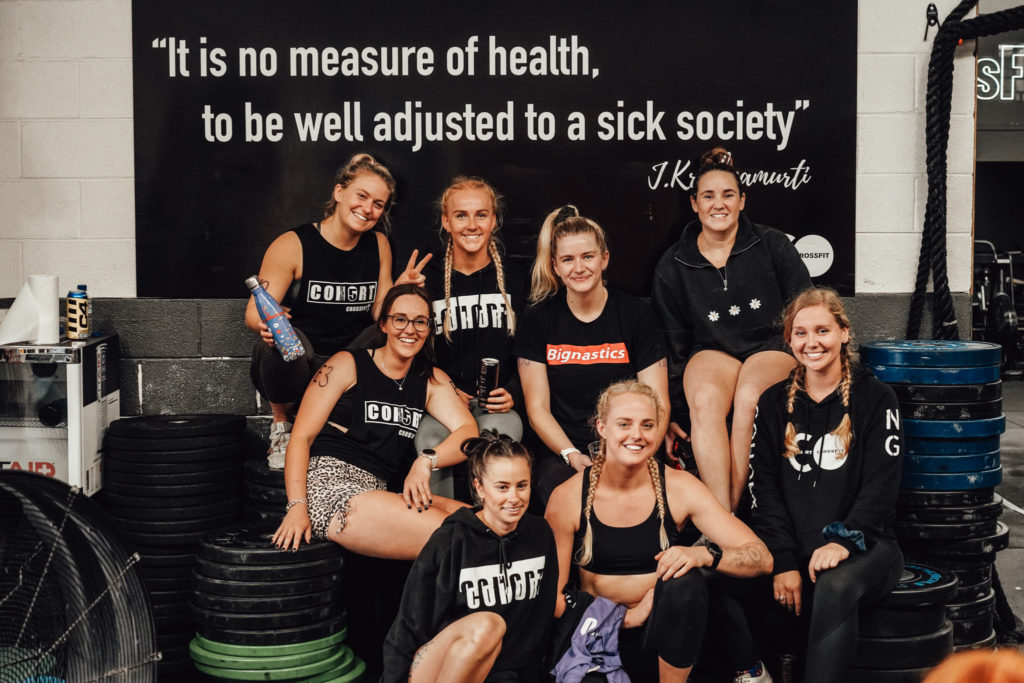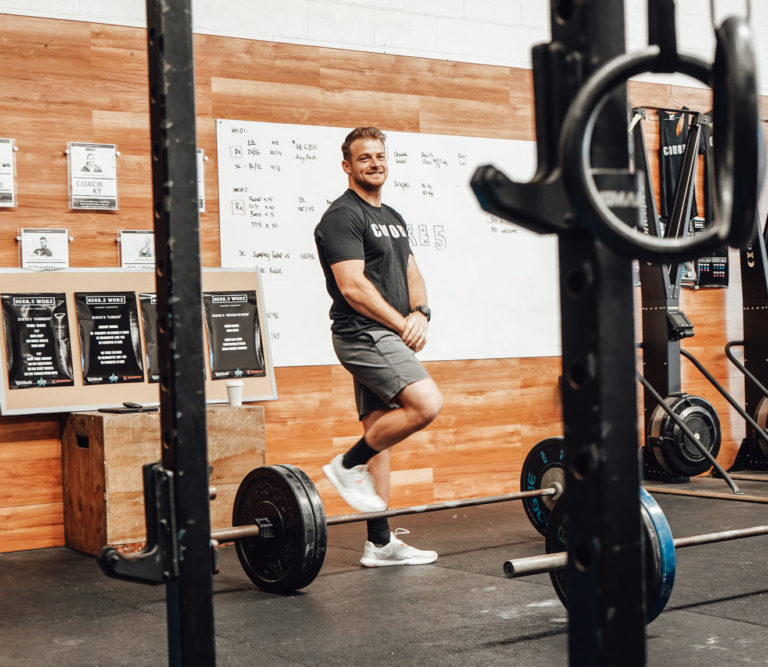
Paul Knowles
“COVID hit us hard,” said Paul Knowles, owner of Cohort CrossFit in Erina, New South Wales, Australia. “My 5 a.m. Monday class saw me in tears, and I was beyond uncomfortable at that moment.”
Knowles, who is usually upbeat, must have made a deep impression on the others in the room with that display of vulnerability. He was worried about his business, of course, but the heaviness he felt came from his care and sense of responsibility for the health of his community.
COVID-19 was spreading rapidly, affecting people everywhere in various ways and to varying degrees. Businesses were forced to alter day-to-day operations to stay in line with restrictions. Many closed their doors — some permanently.
This reality continues for many as the second wave of the pandemic takes hold in countries around the world. Those in the Cohort crew count themselves fortunate because they’ve been allowed to resume operations. Since reopening their doors midsummer, the COVID case load has remained low in their part of Australia, which the Washington Post reported earlier this month is “close to eliminating community transmission of the coronavirus.”
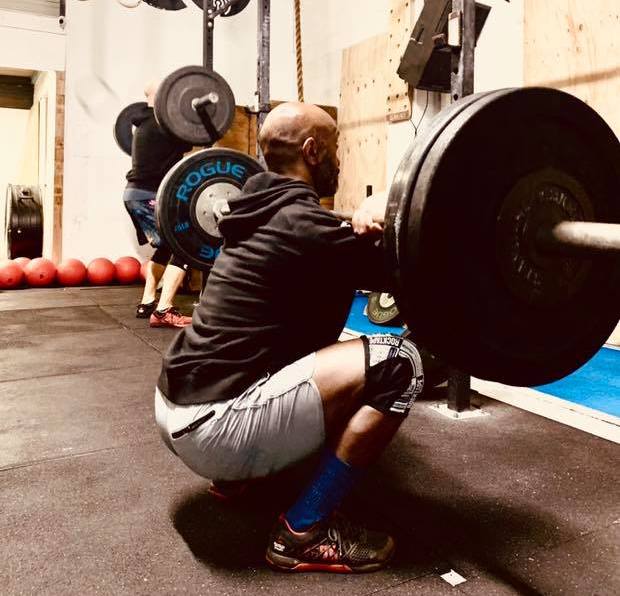
Nevertheless, the Cohort crew experienced its share of challenges this year, and they’ve been forced to make big changes. But not all change is bad.
“At Cohort we’ve survived. And we’ve grown together through COVID,” Knowles said.
For the many who are still struggling with mandates or staring down the barrel of an impending second closure, Knowles’ story may provide a few ideas and a flicker of hope. Here, he shares some of the things he learned while adapting to the challenges of COVID, and he explains how he remained present for his community and motivated to keep fighting.
Pandemic Pivots
“We closed just over three months in my part of Australia, and although that may be minuscule to others, those who run a box understand the ramifications of such a closure,” Knowles explained.
“Over that period we stripped our gym bare, rented it all out to our members, and provided programs for at home, both with and without equipment,” he continued.
He and his team also took the business online, holding classes on Instagram live and maintaining connections with members across various social platforms, including Instagram, Facebook, and Youtube.
“Social media is a huge part of Cohort,” Knowles said, noting 30 percent of his new membership growth comes from people who reach out to him on Instagram. During the pandemic, the importance of social media only grew for Knowles and his team.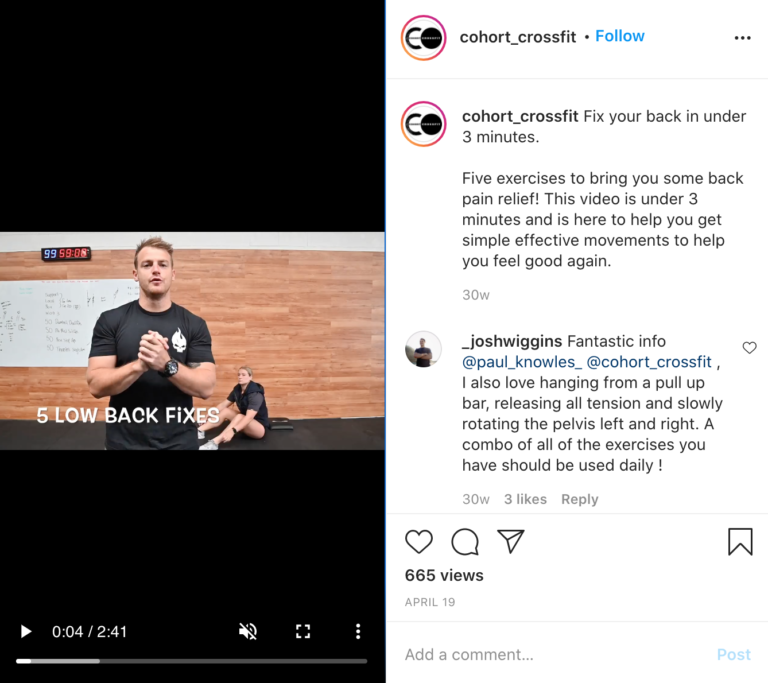
“We used Instagram and Facebook to connect to our community and allowed them into our lives to share in both the highs and lows of it all,” Knowles said.
While he continued to program daily workouts, he also found through Instagram polls that many of his members “didn’t need that intensity” and “didn’t need the screaming music.”
At that moment, many just needed support, community, and a little additional encouragement to relax. So for some sessions, Knowles said, they gathered for “quiet music, talking, (and) my dog would be there.”
In addition to the various programming options, he also made many membership options available.
“Whether it was, you know, $10 a week or up to $50 a week to either hire some gear or to pay for some online programming or come into the gym one-on-one with me,” many remained committed and “paid cash to keep us open,” he said.
Staying Driven When COVID Drain Hits
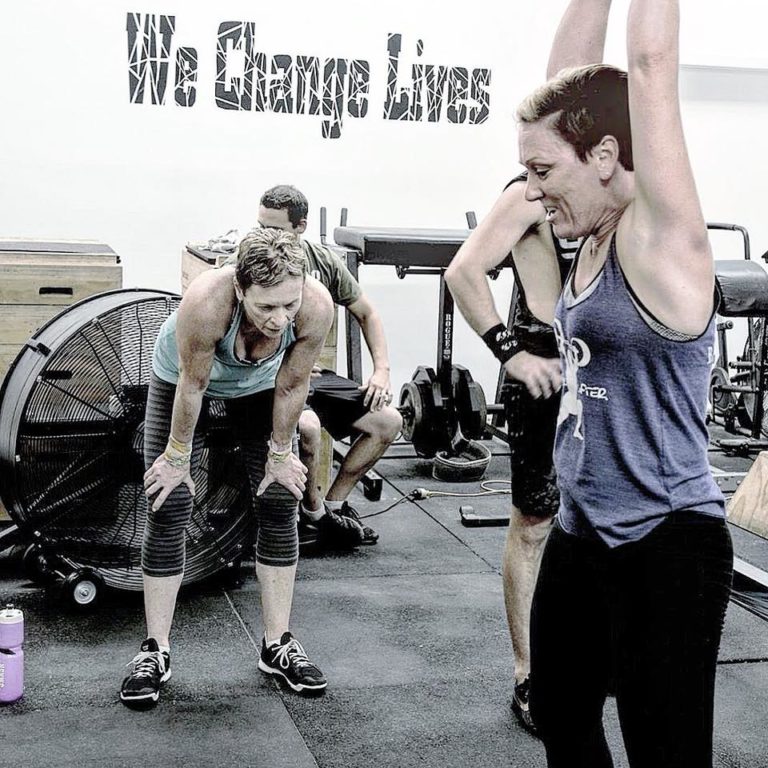
As COVID fatigue set in, Knowles stayed motivated by focusing on the positive changes he’s able to help bring about in the lives of his members.
“Coaches are community builders,” he said. “I’ve seen a lot of relationships be saved by CrossFit … and just being surrounded by a community of like-minded individuals or a community of supportive people has changed their lives.”
He recalled one member who, when he lost his job and was forced to choose between paying for his psychologist or his CrossFit classes, decided his money was best spent at the box.
“He still thinks that that investment is paying him back, and that was really potent to me,” Knowles said.
Knowles has seen the manifold ways CrossFit has improved his members’ mental health, for example helping women get through prenatal or postnatal depression or helping men find a healthy outlet where they can pursue their fitness goals.
“I think fathers are — they’re a key market for us because they do not like to go to gyms where there’s mirrors and muscle-bound junkies, and, you know, guys taking steroids in the toilets,” he said. “I think that the amount of positive influence we’ve had on the ability for males to express themselves in a natural environment without having to peacock around — that’s something that I’ve noticed massively is that effect on mental health.”
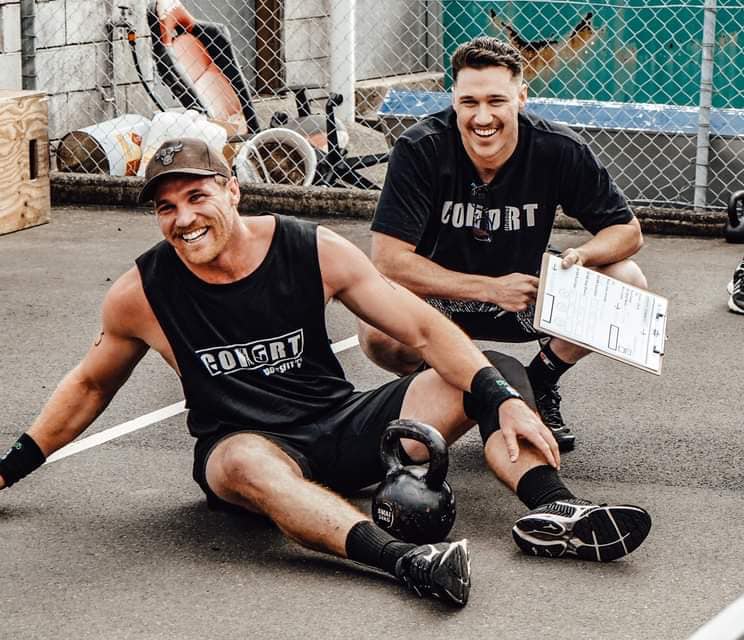
CrossFit’s support of mental health was one of Knowles’ motivations for keeping people connected during the closure.
“I think a lot of people were very privileged to be a part of a community during that time, because it was very isolating for most people,” he said
Cohort members were willing “to pay their premium when it comes to the gym, because it helps their mental health. It helps their sense of community. It helps them be a better father, helps them be a better mother. So for us, for me, I’ve got a new sense of value and pride in what I do,” he said.
The Herb Classic
On Oct. 31, Cohort CrossFit shared a post on its Facebook page that said, “Tomorrow we take the year that gave us lemons, and we make lemon margaritas and turn this shit show into the big show with our 5th Annual Herb competition. This community deserves a party and we (are) going to give it to them.”
The next day, 45 competitors and 50 or more of their biggest fans gathered in and around the box. “We change lives” was proudly emblazoned on the wall behind them.
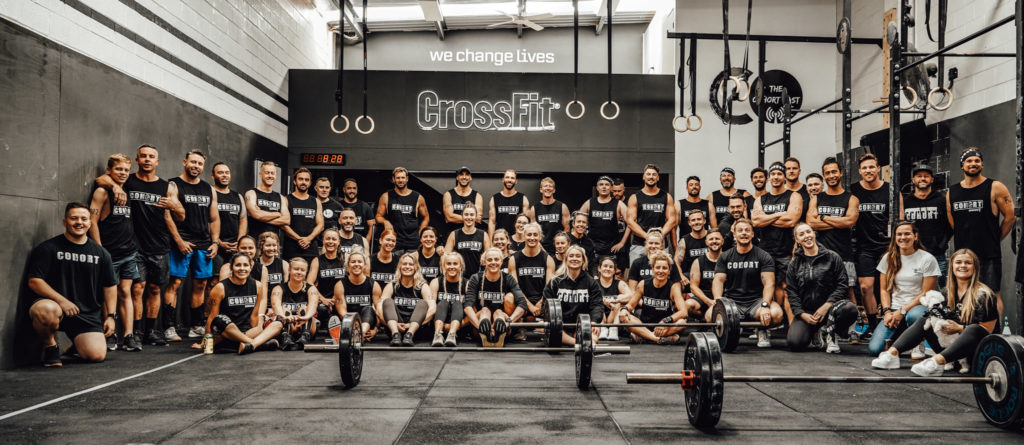
Herb 5, the fifth annual Herb Classic
The gathering — equal parts competition, fundraiser, and party — was the fifth annual Herb Classic, a tradition that began in an effort to support Herb, a member of their community who was diagnosed with multiple sclerosis in 2014. In 2015, they held their first Herb competition, “with food, fitness, and the free T-shirt,” Knowles explained. “We donated the proceeds to his family for a stairlift in his house.”
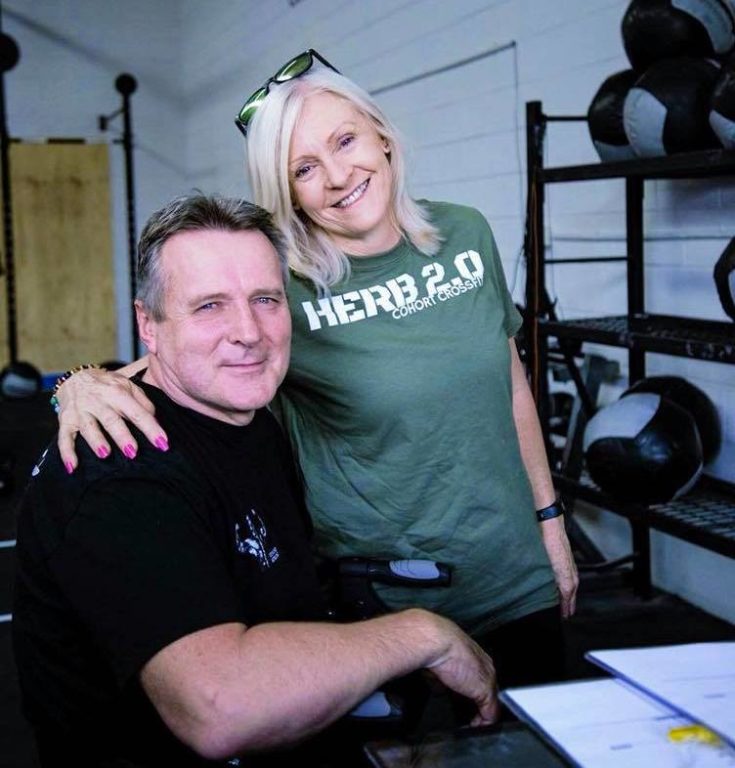
Herb and his wife, Karen
And the tradition has continued: “Over the past five years, we’ve held this Herb competition and donated the proceeds to a member of our community or a donation of their choice,” Knowles said. Proceeds have gone to organizations dedicated to cancer research, heart health, and more, often in the name of the member whose life has been affected.
This year was a little different. This year the event was for the members. “It was for our community,” Knowles said. The goal was “to deliver our members a ‘thank you’ to remember.”
Instead of hosting a massive event and inviting other local affiliates, they kept this one in house, and the event was a success, a riotous celebration of fitness and community, and a reminder of what keeps them all coming back.
“What I love most about a small in-house event is how it takes CrossFit back to its dungeon days,” Knowles said. “Everyone feels connected by a singular word: CrossFit. The desire to suffer for a moment to benefit beyond it is ultimately what binds the community beyond burpees. And what starts as, ‘I’ll just try it and see how I go’ turns into a shoe-buying, hand-ripping, ugly-snatch-sharing love for the people within the confines of a box.”
“It’s a really beautiful, romantic thing that CrossFit brings to people,” he said. “It’s magical.”
All photos courtesy of Cohort CrossFit
